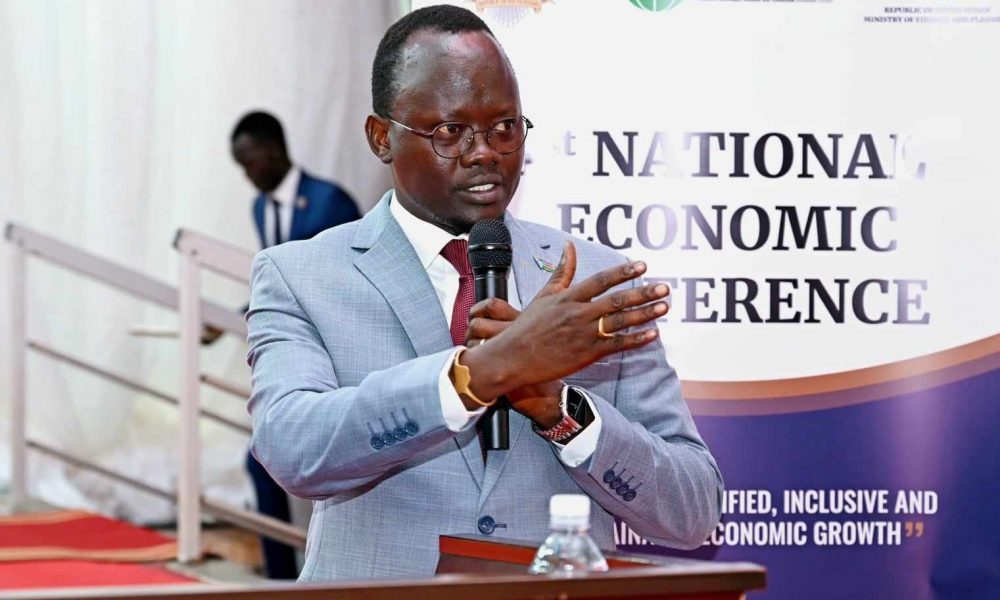By Bida Elly David
The Ministry of Finance and Economic Planning, with support from the United Nations Development Programme (UNDP), has developed an Information Management System (IMS) for regulating financial aid from donors.
Finance Minister Bak Barnabas Chol disclosed this during the stakeholders’ validation meeting on AID in Juba yesterday, saying the system will regulate donations.
South Sudan has been receiving humanitarian and developmental financial grants from partners as part of their aid to vulnerable communities, after the conflict and continuous flooding.
Minister Bak stressed that the new system will automate all humanitarian and development donations from partners.
“To harmonize partners effectively, coordination within government institutions must be strengthened,” he said.
He noted that the system also serves the purpose of easing reports on how funding has been utilized for their purposes.
Bak underscored that the introduction of the device is one of the items within the national AID policy key to accountability.
“The National AID Policy serves as the government’s framework for the management of Official Development Assistance (ODA) and sets out its principles and vision for the transformation of AID architecture in the country,” he explained.
The minister underscored that the policy also aims to strengthen the alignment of government with international cooperation financing agencies through the Sustainable Development Goals (SDGs).
“It is therefore important for the government to effectively engage with non-OECD cooperation partners to diversify funding sources and strengthen partnerships,’’ Bak said.
However, Minister Bak reacted by saying that South Sudan can’t be entitled to aid without a policy that regulates grants.
“Taking ownership of the policy and implementing it to the letter and spirit is essential for the government,” he noted.
The minister elaborated that the policy is to ensure that AID efforts are aligned with national development priorities and effectively address the country’s specific policy objectives and needs.
“The current shift in AID flows, with humanitarian spending and social infrastructure constituting a significant portion of assistance, while direct budget support operations have ceased,” he echoed.
Meanwhile, Titus Osundina, the UNDP deputy country director, said South Sudan still remains a post-conflict country with unique challenges to its path towards sustainable developmental goals (SDGs).
Titus said the young East African nation is still encountering humanitarian and developmental constraints that ought to be mitigated by partners.
“Humanitarian, development, and peace actors are called upon to better coordinate their work and promote the transformation of South Sudan from crisis and conflict into sustainable peace,” Titus said.
He added that the United Nations Development Programme remains committed to helping South Sudan in this catastrophic situation.
“It is essential to establish a clear link between humanitarian, peacebuilding, and development efforts, and by doing so, we shall address the root causes of the crisis,” he echoed.
Titus called on the Ministry of Finance to demonstrate commitment to implementing 8 AID strategic policies to foster development for the young nation through investment.



